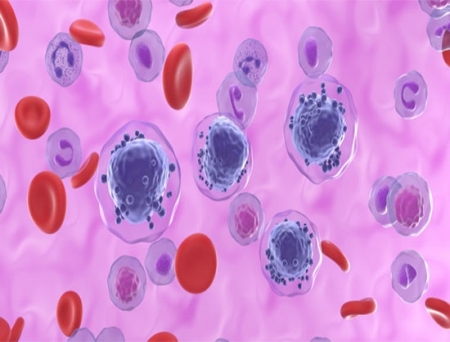Syndax Gets FDA Approval of Revuforj for Relapsed or Refractory Acute Leukemia

Syndax Pharmaceuticals has announced that the US Food and Drug Administration (FDA) has approved Revuforj® (revumenib) as the first and only menin inhibitor for the treatment of relapsed or refractory (R/R) acute leukemia with a lysine methyltransferase 2A gene (KMT2A) translocation in adult and pediatric patients one year and older.
The FDA previously granted Breakthrough Therapy and Fast Track designations as well as Priority Review for Revuforj. The New Drug Application (NDA) received approval through the FDA's Real Time Oncology Review (RTOR) program.
"The approval of Revuforj is a remarkable achievement that reflects the dedication and tenacity of everyone involved, especially the patients and clinicians who participated in our trial and our talented Syndax team," said Michael A. Metzger, Chief Executive Officer of Syndax.
"We are well-prepared to launch Revuforj this month and we are committed to rapidly advancing the development of Revuforj across the treatment continuum for KMT2A-rearranged acute leukemias and mutant NPM1 AML," Metzger added.
The efficacy evaluation of Revuforj was based on an FDA analysis of 104 patients with R/R acute leukemia with a KMT2A translocation who were treated with Revuforj in the Phase 1/2 AUGMENT-101 trial. In the efficacy population, the rate of complete remission (CR) plus CR with partial hematological recovery (CRh) was 21 percent (22/104 pts; 95 percent CI: 13.8 percent, 30.3 percent).
The median duration of CR+CRh was 6.4 months (95 percent CI: 2.7, not estimable) and the median time to CR or CRh was 1.9 months (range: 0.9, 5.6 months). Twenty-three percent (24/104 pts) of patients underwent hematopoietic stem cell transplantation (HSCT) following treatment with Revuforj. Results from the 104-patient efficacy analysis are consistent with the previously reported, protocol-defined Phase 2 interim analysis of patients with R/R KMT2Ar acute leukemia in the AUGMENT-101 trial (n=57) which were published in the Journal of Clinical Oncology1.
"The FDA approval of the first menin inhibitor is a major breakthrough for patients with R/R acute leukemia with a KMT2A translocation, a genetic alteration associated with a very poor prognosis," said Ghayas C. Issa, M.D., Associate Professor of Leukemia at The University of Texas MD Anderson Cancer Center.
"The significant clinical benefit and robust efficacy seen with Revuforj represents a substantial improvement over what has been historically observed in these patients with previously available therapies and has the potential to be an important new treatment option for patients," Issa added.
The safety evaluation of Revuforj was based on an FDA analysis of 135 patients with R/R acute leukemia with a KMT2A translocation who were treated with Revuforj. The most common adverse reactions (≥20 percent) including laboratory abnormalities were hemorrhage, nausea, phosphate increased, musculoskeletal pain, infection, aspartate aminotransferase increased, febrile neutropenia, alanine aminotransferase increased, parathyroid hormone intact increased, bacterial infection, diarrhea, differentiation syndrome, electrocardiogram QT prolonged, phosphate decreased, triglycerides increased, potassium decreased, decreased appetite, constipation, edema, viral infection, fatigue, and alkaline phosphatase increased. Adverse reactions leading to dose reduction or permanent discontinuation were low at 10 percent and 12 percent of patients, respectively.
Last news about this category

We use our own and third party cookies to produce statistical information and show you personalized advertising by analyzing your browsing, according to our COOKIES POLICY. If you continue visiting our Site, you accept its use.
More information: Privacy Policy















